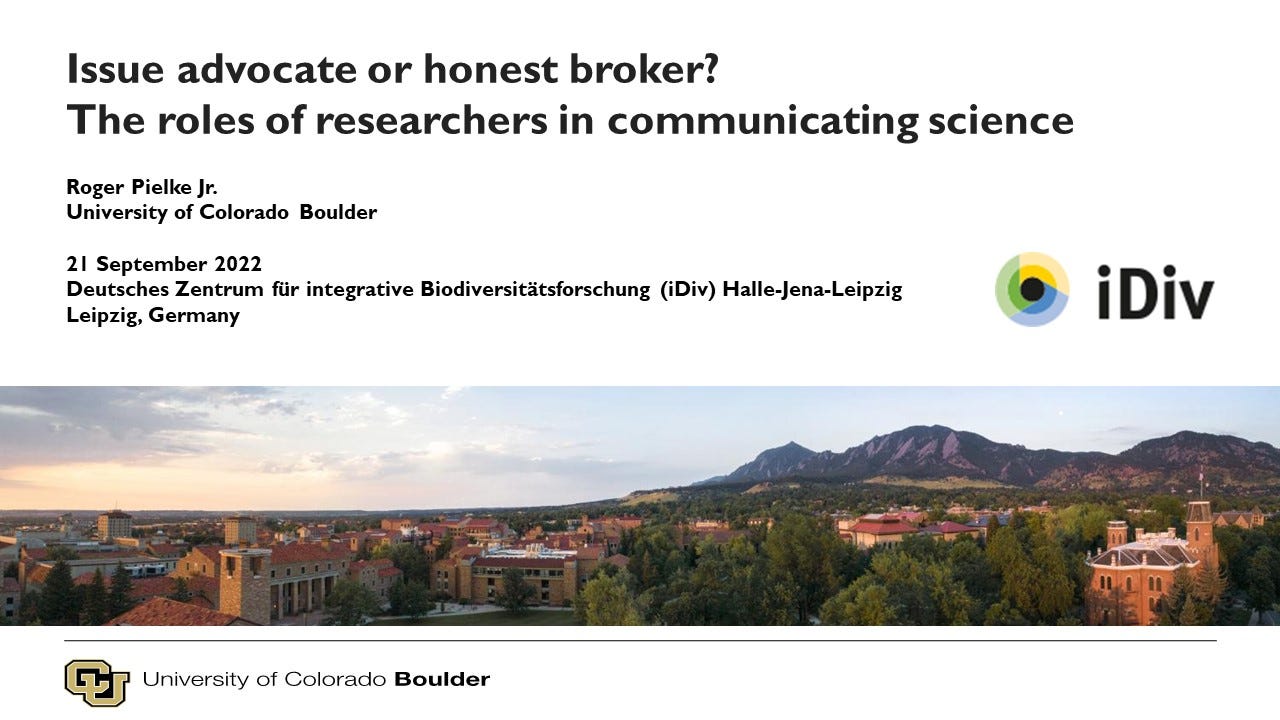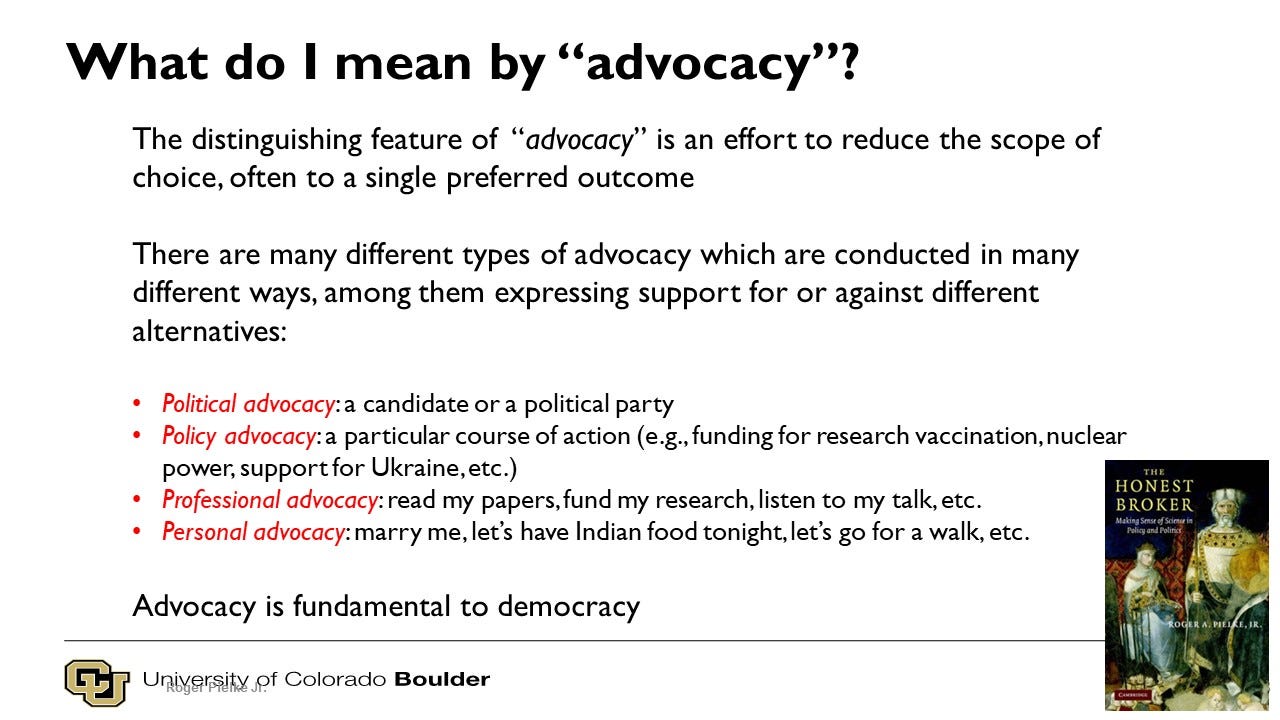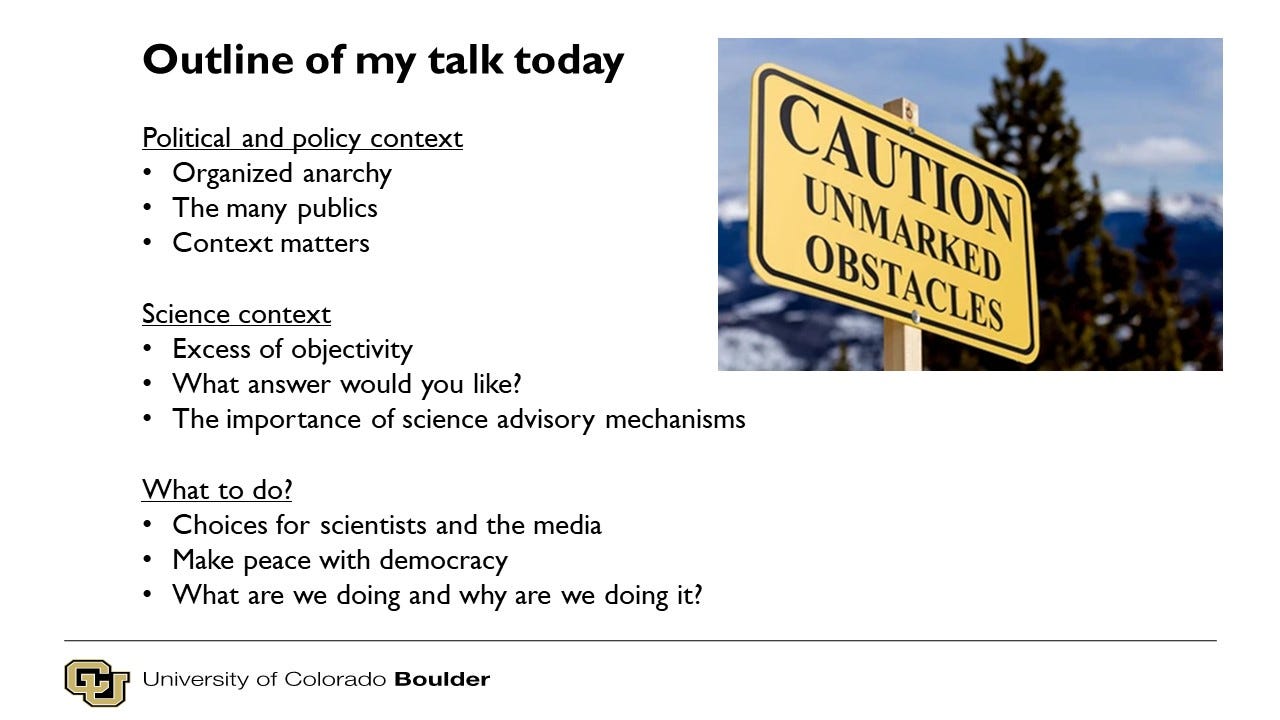The Most Important Questions for Scientists to Ask About Advocacy
Summary of my talk yesterday in Leipzig, Germany
This week I am giving a couple lectures in Leipzig, Germany about advocacy by scientists and science organizations — a hot topic to be sure. Yesterday, I spoke at the German Center for Integrative Biodiversity Research (iDiv) and participated in a panel discussion after. It was fun and rewarding. Plus I met some really interesting people doing fascinating work.
The issue of advocacy by scientists has long been discussed and debated. The topic is also a focus on my book, The Honest Broker, after which this Substack was named. Over the past 15 years or so I’ve overserved a growing interest among scientists in having greater influence in policy and politics, and at the same time, the important of expertise in decision making has arguably grown in importance.
So there is a growing supply and demand for advocacy by scientists, even if some politicians see experts as unwelcome or inconvenient. But advocacy by scientists is not a simple do-it-or-don’t-do-it issue. Too often I see discussions of the issue reduce to a question of whether or not scientists (and the institutions they work in) should advocate. This question is trivial - Yes, of course they should! More important questions are why? and how? and with what consequences?
There are many ways in which an expert might advocate, and there are both positive and negative outcomes associated with different approaches in different contexts. I suggested that if one does not have a clear understanding of differences between advocacy’s potential for both positive and negative outcomes — for science, policy and politics — then one should probably develop such an understanding before jumping into the fray.
My talk was thus not about providing answers but about navigating the complex and sometimes counterintuitive contexts of politics and science that make advocacy so challenging, risky and rewarding. Below share a few slides from my talk, and the full deck is downloadable after the jump for paid subscribers.
Here is how I started, title slide and starting point.
I observed that demands for advocacy in science are common, such as demands that scientists (and science organizations) advocate for science — typically meaning a call for increasing science budgets funded by the public. That used to be the main focus of science advocacy, but today we see experts and their institutions mobilizing for and against political candidates, parties and policies. We even see advocacy for and against media outlets, public figures and other scientists whose views are deemed politically unhelpful. Like I said, it is a complex territory.
I opened with my definition of “advocacy” — not for purposes of suggesting that anyone else need accept this definition, but rather, so that there is clarity about what I mean specifically when I use the term.
Here then is an outline of my talk.
It was a fun talk to give because of the discussion that ensued. It is taken from my ongoing work on the sequel to The Honest Broker, which is tentatively tilted The Honest Broker in Practice, with a focus on how to take the framework from an interesting set of tools and vocabularies for discussing these issues to the real world. Part of my sabbatical is being spent moving that project along, which you can follow in this SERIES: Making Sense of Science in Policy and Politics.
Paid subscribers can download all 33 slides from my talk as a PDF after the jump.
As always, comments, suggestions, questions, challenges, critique are always welcome here at The Honest Broker, and are appreciated — they help me to learn and to communicate better.








